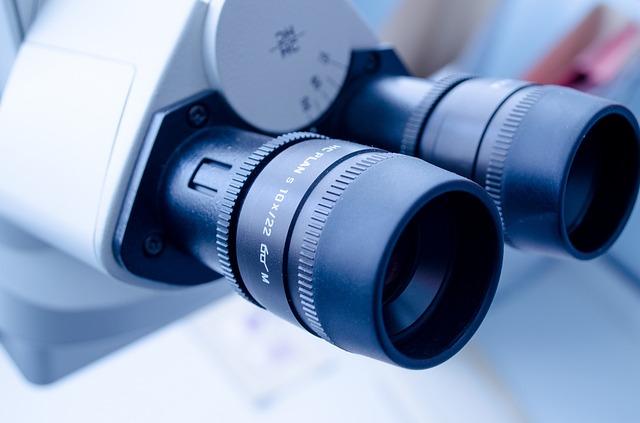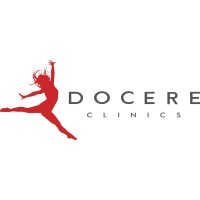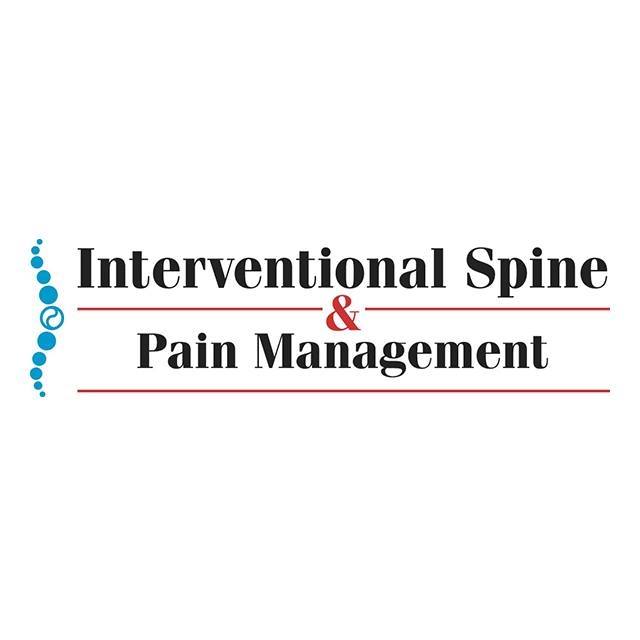Stem Cell Therapy Utah: A Comprehensive Guide to Improving Health Conditions
Hello, Utah residents! Are you curious about stem cell therapy and how it could improve your quality of life? Well, you’ve come to the right place. We’re here to guide you through the ins and outs of this groundbreaking medical treatment. Think of stem cells as the body’s repair kit. When you get a cut, your body naturally heals itself, right? Stem cells work in a similar way but on a more complex level, helping to heal damaged tissues and organs.
In this comprehensive guide, we’ll cover everything you need to know about stem cell therapy in Utah. From the science behind stem cells to the clinics near Salt Lake City that offer stem cell treatments, we’ve got you covered. We’ll also delve into regenerative medicine, a field that includes stem cell therapy and other regenerative therapies aimed at helping your body heal itself.
So, whether you’re dealing with chronic neck pain or exploring options for pain management, read on to discover how Utah stem cell therapy may be the game-changer you’ve been waiting for.
What You’ll Learn:
- What stem cell therapy is and how it works
- The legal landscape of stem cell treatment in Utah
- Benefits, risks, and what to expect from therapy and regenerative medicine
- How to book an appointment for a consultation at a reputable clinic
Do you understand the potential of stem cell therapy in improving your health? Are you aware of the clinics in Utah that offer stem cell treatments? What questions do you have? Feel free to keep these questions in mind as you read through this guide.

What is Stem Cell Therapy?
If you’re new to the world of stem cell therapy, you might be wondering what all the buzz is about. Imagine you’re a gardener, and your body is the garden. Normally, you’d plant seeds, water them, and watch them grow into beautiful plants. Stem cells are like those magical seeds that can grow into various types of tissue in your body, helping to repair or replace damaged areas.
Types of Stem Cells
- Embryonic Stem Cells: These are the all-stars, capable of turning into any cell type in the human body.
- Adult Stem Cells: More specialized, these cells can only turn into certain types of cells, like blood or muscle cells.
- Induced Pluripotent Stem Cells (iPSCs): These are adult cells that have been genetically reprogrammed to act like embryonic stem cells.
How Do Stem Cells Work?
Stem cells have the unique ability to replicate and turn into specialized cells. They’re like the Swiss Army knife of the cellular world, versatile and multi-functional. When injected into a damaged area, they get to work, aiding in natural healing and regeneration.
Applications and Treatments
- Orthopedic Issues: Stem cells can help regenerate cartilage and bone, offering a less invasive alternative to surgical procedures.
- Neurological Conditions: Research is ongoing, but there’s promise in using stem cells for conditions like Parkinson’s and Alzheimer’s.
- Cardiovascular Diseases: Stem cells have shown potential in repairing damaged heart tissue.
PRP Therapy: A Side Note
You might also hear about PRP therapy (Platelet-Rich Plasma) in your quest for pain management. While not a stem cell treatment, PRP involves using the patient’s own blood to accelerate healing. It’s another tool in the toolbox of regenerative medicine.
University of Utah’s Contribution
The University of Utah is at the forefront of stem cell research, contributing to the latest advancements in cell therapy and regenerative medicine. So, if you’re in or near Salt Lake City, you’re in a hotspot for cutting-edge medical treatments.
Questions to Ponder:
- Are you more interested in stem cell therapy or Platelet-Rich Plasma (PRP) therapy for your condition?
- How does the ability of stem cells to help you feel stronger and help your body heal resonate with you?
- What specific medical treatment are you considering that involves stem cells?
The Legal Landscape in Utah
Navigating the legal waters of stem cell therapy can be like trying to find your way through a maze. But don’t worry, we’re here to guide you through the labyrinth of laws and regulations that govern this innovative form of treatment in Utah.
Current Laws and Regulations
- FDA Approval: While some forms of stem cell therapy have FDA approval, many are still considered experimental. It’s crucial to consult with a qualified physician to understand what’s allowed.
- State Guidelines: Utah has its own set of regulations that complement federal laws. Always ensure that the clinic you choose complies with both state and federal guidelines.
Ethical Considerations
- Source of Stem Cells: The ethics surrounding the use of embryonic stem cells can be a hot-button issue. Adult stem cells and iPSCs generally have fewer ethical concerns.
- Informed Consent: Before undergoing any stem cell injections, you should be fully informed about the risks and benefits. Think of it as reading the terms and conditions before clicking “I agree” on a software update, but with higher stakes.
Compliance and Safety
- Board Certification: Make sure your healthcare provider is board-certified in regenerative medicine or a related field.
- Transparency: Clinics should be transparent about the results are incredible, but remember, individual results can vary.
Quality Assurance
- Accreditation: Look for clinics that have received accreditation from reputable medical boards or organizations.
- Testimonials: While not a substitute for medical advice, patient testimonials can provide valuable insights into a clinic’s reputation.
Media Coverage
Clinics and physicians specializing in stem cell therapy often receive media attention. Keep an eye out for features on ABC News, Fox 13, and KSL Studio 5 to gauge the credibility of your chosen provider.
Questions to Consider:
- Are you aware of the ethical considerations surrounding your chosen form of stem cell treatment?
- Have you checked if the clinic you’re considering is compliant with Utah’s state regulations?
- What questions will you ask during your consultation to ensure you’re making an informed decision?

Benefits and Risks: Weighing the Pros and Cons
Imagine you’re standing at a crossroads, and each path represents a different healthcare option. One path is labeled “Traditional Treatments,” filled with familiar but sometimes ineffective solutions. The other is labeled “Stem Cell Therapy,” a road less traveled but filled with potential. How do you choose? Understanding the benefits and risks of stem cell therapy can help you make an informed decision.
Benefits of Stem Cell Therapy
- Natural Healing: Stem cells work with the human body’s own mechanisms to promote healing. It’s like having a personal repair crew on standby.
- Less Invasive: Compared to surgical procedures, stem cell injections are less invasive. Think of it as fixing a leaky faucet without tearing down the entire wall.
- Pain Management: For those dealing with chronic pain, stem cell therapy offers an alternative to addictive pain medications, wether you have neck pain, joint pain or any other chronic pain.
- Quality of Life: Many patients report significant improvements in their day-to-day activities and overall well-being.
Risks and Side Effects
- Cost: Stem cell therapy can be expensive, and insurance coverage varies. It’s like buying a luxury car; it’s fantastic but comes with a hefty price tag.
- Limited Data: While promising, long-term data on the effectiveness of stem cell therapy is still limited.
- Immune System Reactions: As with any medical treatment, there’s a risk of adverse reactions, including issues with your immune system.
PRP Therapy or Platelet-Rich Plasma: An Alternative
- PRP Therapy: Platelet-Rich Plasma (PRP) therapy uses components from the patient’s own blood to accelerate the natural healing process. It’s like using premium fuel in your car for better performance.
What to Expect
- Consultation: Before you book an appointment, you’ll typically have a consultation to answer any questions you may have.
- Actual Injection: The injection process is usually quick and may involve local anesthesia to numb the area.
- Follow-Up: Post-treatment care is crucial for optimal results. You’ll likely have follow-up appointments to monitor your progress.
Questions to Consider:
- Are the potential benefits of stem cell therapy compelling enough for you to take the plunge?
- Have you considered the financial aspects and how they fit into your healthcare budget?
- What are your thoughts on the risks associated with stem cell therapy, and are they deal-breakers for you?
Available Treatments in Utah: Your Options Unveiled
So, you’ve weighed the pros and cons, and you’re ready to explore the available stem cell treatments in the Beehive State. Think of this as shopping for a new car; you want the best model that suits your needs, right? The same goes for choosing a stem cell therapy provider.
Clinics Offering Stem Cell Therapy
- Salt Lake City Hotspots: If you’re based in or near Salt Lake City, you’re in luck. The city is a hub for clinics specializing in regenerative medicine.
- Specializations: From orthopedic issues to pain management, clinics in Utah offer a range of treatments. Some even delve into medical aesthetics.
- William Cimikoski, MD: One notable physician in the field is Dr. William Cimikoski, a medical toxicologist that specializes in regenerative therapies.
Types of Treatments
- Stem Cell Injections: These involve injecting stem cells directly into the affected area to promote joint regeneration and natural healing.
- PRP Injections: A form of PRP therapy, this involves using platelet-rich plasma from the patient’s own blood to accelerate healing.
- Umbilical Stem Cells: These are derived from umbilical cords and are used in specific treatments.
Case Studies and Testimonials
- Real Stories: Clinics often share testimonials from patients who have undergone successful treatments. These stories can offer a glimpse into what you might expect.
- Media Coverage: Keep an eye out for clinics featured on ABC News, Fox 13, or KSL Studio 5 for added credibility.
How to Book an Appointment
- Consultation: The first step is usually a consultation to discuss your needs and answer any questions you may have.
- Evaluation: You’ll undergo a medical evaluation to determine the best course of treatment.
- Treatment Plan: A customized treatment plan will be developed, tailored to your specific condition.
- Actual Treatment: Once everything is set, you can proceed with the actual injection or treatment.
Questions to Consider:
- Have you researched clinics near you that offer stem cell treatments?
- What type of stem cell therapy are you most interested in, and why?
- Are you comfortable with the clinic’s approach to cell therapies and their track record?
Costs and Insurance: The Financial Landscape
Let’s talk money. Imagine you’re investing in a high-end, state-of-the-art computer system. You wouldn’t make that purchase without understanding the costs involved, right? Similarly, understanding the financial aspects of stem cell therapy is crucial before diving in.
Average Costs
- Stem Cell Treatments: The cost can range from a few thousand to several thousand dollars, depending on the complexity of the treatment.
- PRP Therapy: Generally less expensive than stem cell treatments, but still a significant investment.
Insurance Coverage
- Traditional Plans: Most insurance plans do not cover stem cell therapy as it’s often considered experimental.
- Specialized Packages: Some insurance providers may offer specialized packages that partially cover treatments.
Financial Assistance and Payment Plans
- Installments: Some clinics offer payment plans to make the treatment more accessible.
- Grants and Scholarships: Believe it or not, there are grants and scholarships available for certain types of medical treatment.
What’s Included
- Consultation Fees: These are usually separate from the treatment cost.
- Follow-Up Care: Make sure to inquire whether post-treatment follow-ups are included in the initial cost or billed separately.
Transparency is Key
- Itemized Billing: Ask for an itemized bill to understand what you’re paying for. It’s like checking the receipt after grocery shopping; you want to know where your money is going.
Questions to Consider:
- Have you checked if your health care insurance plan offers any coverage for stem cell therapy?
- Are you prepared for the financial commitment involved in undergoing this form of treatment?
- Have you explored all available options for financial assistance or payment plans?
Conclusion: Your Next Steps on the Road to Better Health
As we reach the end of this comprehensive guide, think of yourself as a well-informed traveler at the end of a journey. You’ve gathered your maps, understood the terrain, and now you’re ready to set out on your own adventure in the world of Utah stem cell therapy.
Key Takeaways
- Stem Cell Therapy: This innovative treatment leverages your body’s own cells to help heal damaged tissue and improve your quality of life.
- Legal Landscape: Always ensure that the clinic and treatment you choose are compliant with both federal and Utah state regulations.
- Benefits and Risks: Like any medical treatment, stem cell therapy comes with its own set of pros and cons. Make sure to weigh these carefully.
- Financial Aspects: Be prepared for the financial commitment and explore all available options for payment and insurance coverage.
Actionable Steps
- Consult a Physician: The first step is to consult a qualified healthcare provider for a thorough evaluation.
- Research Clinics: Look for reputable clinics that specialize in regenerative medicine and cell therapies.
- Financial Planning: Understand the costs involved and make a financial plan to manage them.
- Stay Informed: Keep up-to-date with the latest advancements in stem cell research and treatments.
Final Thoughts
Stem cell therapy offers a promising avenue for treating a variety of health conditions and health care. While it’s not a magic bullet, it’s an exciting option that could significantly improve your health, and well-being.
Utah Stem Cell Therapy Providers
Here you can find the best stem cell therapy providers in the state of Utah. Fill out the form and a provider will contact you as soon as possible.







